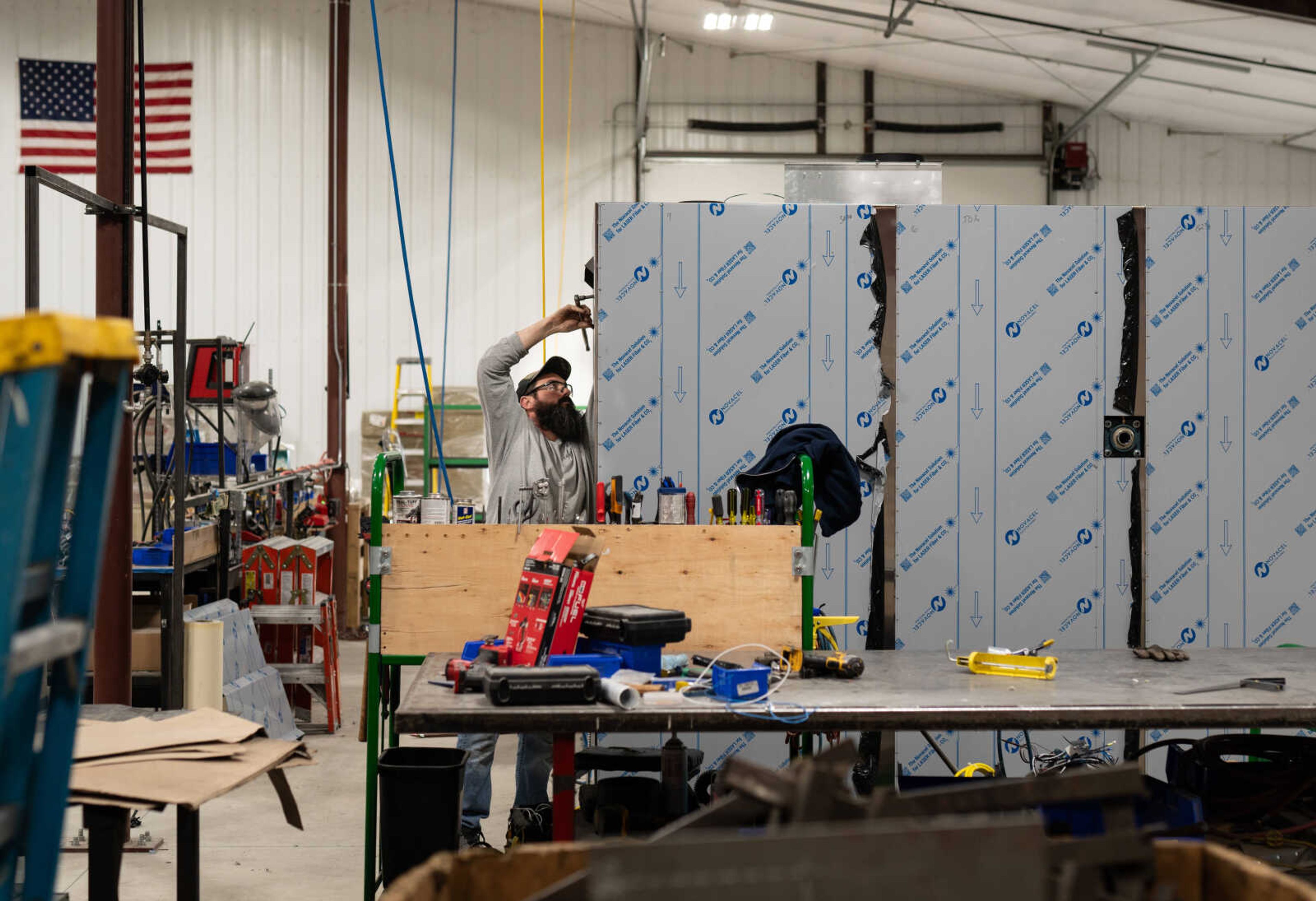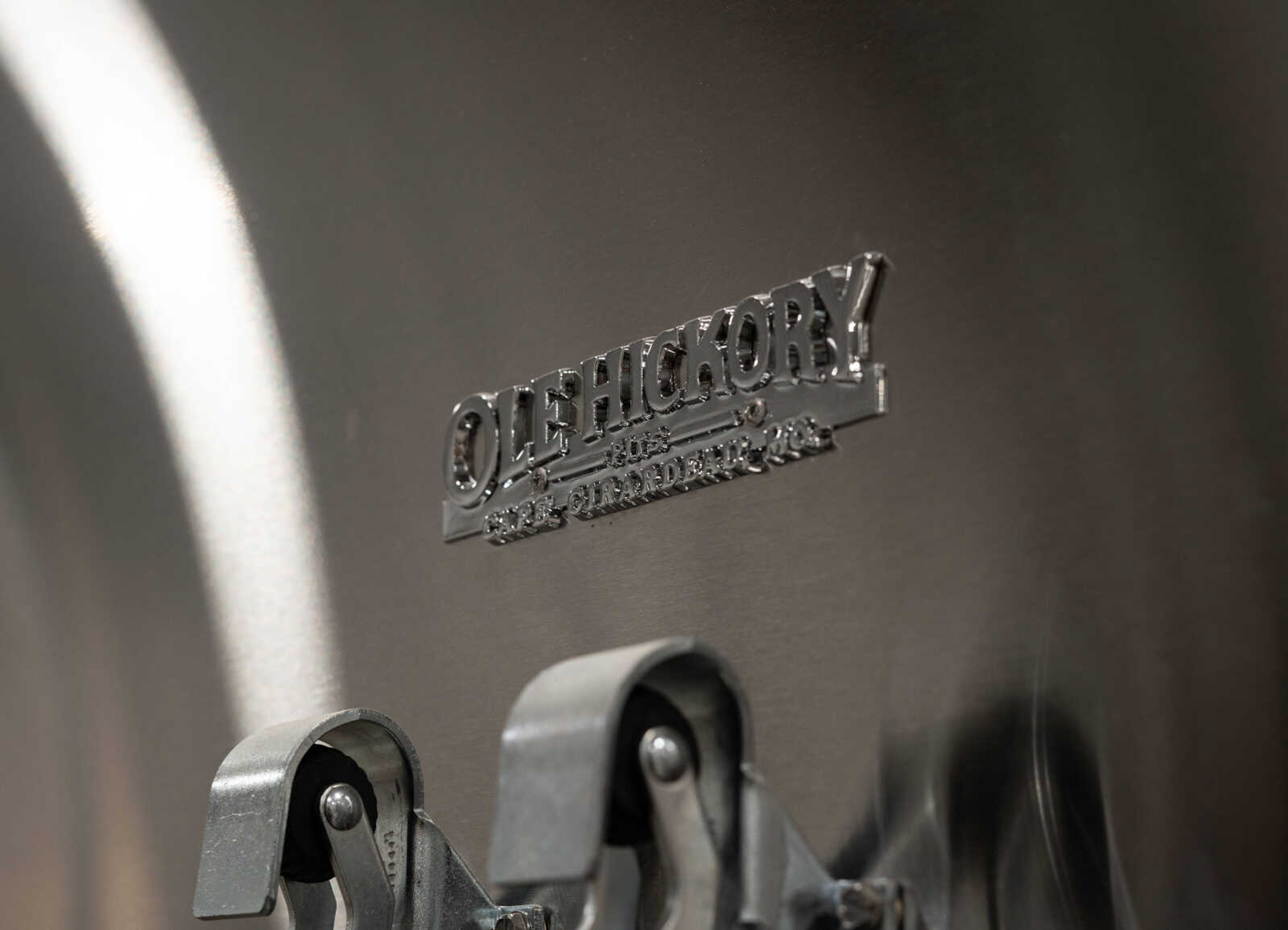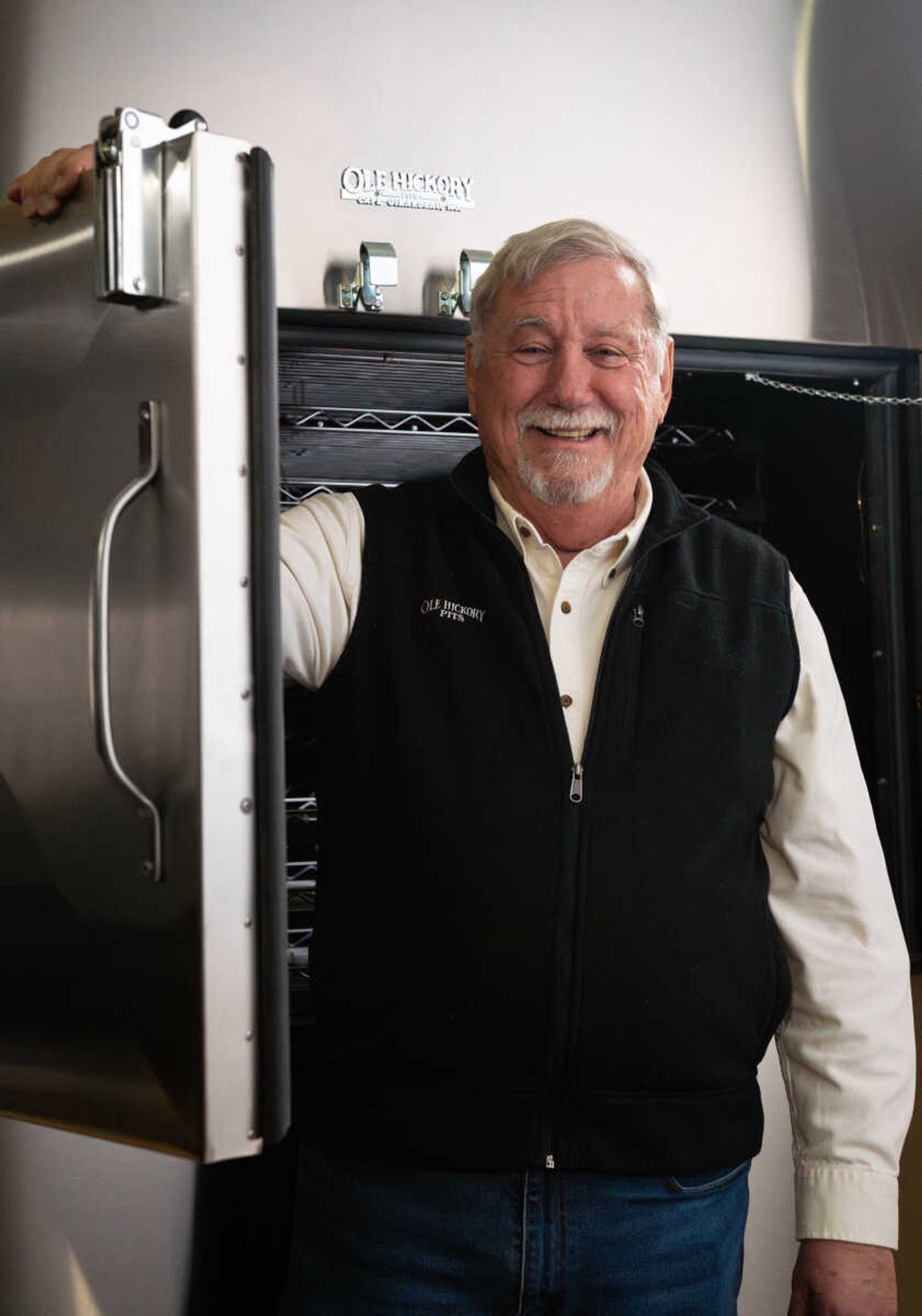David B. Knight: Ole Hickory Pit founder’s story to success and Barbecue Hall of Fame
There was once a saying that the sun never set on the British Empire. Today it can also be said the fire never goes out in an Ole Hickory Pit smoker. At any given moment there are hundreds — even thousands — of Ole Hickory Pit barbecues in use on six of the world’s seven continents...
There was once a saying that the sun never set on the British Empire.
Today it can also be said the fire never goes out in an Ole Hickory Pit smoker. At any given moment there are hundreds — even thousands — of Ole Hickory Pit barbecues in use on six of the world’s seven continents.
“As for Antartica, well, maybe someday,” Ole Hickory Pits founder David B. Knight said with a grin during a recent B Magazine interview at his company’s Cape Girardeau headquarters.
A native of Poplar Bluff, Missouri, Knight’s name has been synonymous with barbecue for nearly 50 years. After majoring in business and minoring in art at Arkansas State University and earning an MBA at Jacksonville State University in Alabama, Knight made a business decision in the mid-1970s that not only changed his life but also the restaurant landscape in downtown Cape Girardeau.
At the time, Knight was teaching business classes as a graduate assistant at Jacksonville State in Jacksonville, Alabama.
“I did that for two years and really enjoyed it, but I was ready to move on and do something besides teaching,” he said.
“My family had a farm near Advance, and I would work at the farm during the summers, and one summer I saw a building on the corner of Water Street and Themis in Cape that was going to be torn down,” Knight recalled.

The owner of the vacant building at 19 North Water Street, late Cape Girardeau businessman Marty Hecht, had plans to demolish the pre-Civil War structure to make room for a parking lot. “I thought that would be a travesty because it was a beautiful building,” Knight said, so he acquired the three-story brick building from Hecht for what he described as an “attractive” price.
“I won’t mention how much it was, but I will say it turned out to be a very good investment,” Knight said with a smile.
Knight took possession of the property in July 1974 and opened a restaurant there by the end of that year. Now, almost a half-century later, Port Cape is one of the oldest continuously operating full-service restaurants in Cape Girardeau. (There are at least three other local restaurants older than Port Cape. They are Sands Pancake House, established in 1953, Pilot House, which opened in the early 1960s, and Grecian Steak House, which dates back to 1970.)
Undeterred by his lack of restaurant experience, Knight decided his new eatery would specialize in barbecue, a favorite of his since childhood. He also decided his barbecue ribs, pork and chicken would be prepared in a one-of-a-kind brick pit he designed specifically for the Port Cape building that incorporated a three-story flue and manual damper system.
His pit produced some of the region’s finest barbecue, and Port Cape became a popular dining destination almost immediately. Nothing could go wrong with Knight’s custom barbecue pit unless the kitchen staff failed to activate the flue’s damper system. If that happened, the pit was prone to catch fire. Which it did. Three times. In one week.
It was after the third visit by the Cape Girardeau Fire Department that Knight decided there had to be a better — and safer — way to produce the mouth-watering barbecue Port Cape was known for. “Necessity,” he said, “was truly the mother of invention.”
Barbecue, Knight believes, has been around for thousands of years and probably began shortly after the discovery of fire by prehistoric cavemen. But the way meat was barbecued hadn’t changed much since then. In simplest terms, meat was cooked over an open fire. The only problem was fat drippings from the meat tended to cause fire flare-ups.
So, Knight designed an innovative “fire resistant” barbecue smoker oven that insulated meat from the fire and not only kept drippings from fueling flair-ups, but also allowed the meat to cook more evenly.
“The basic formula for barbecue is low and slow,” he explained. “Low temperature and long cooking time.”
And the barbecue pit Knight designed did just that. It allowed meat to be cooked slowly over an extended period, thereby locking in flavor and natural juices of each cut.
“Ribs, for instance, come in all different sizes,” he said. “You can do really small ribs in maybe three hours, but the big ones will be something like five hours. Low [temperature] and slow [cooking time] gives the meat time to really get tender.”
Not only did he install his redesigned barbecue pit at Port Cape, but also he soon discovered there was a market for his pits at other restaurants.
“Fifty years ago there were no big barbecue chain restaurants and everybody was having the same problems with flare-ups, and that’s how I got into the barbecue pit manufacturing business,” he said as he explained the origin of Ole Hickory Pits and how he began selling commercial barbecue pits to restaurants throughout the area and across the nation.
“For a while I was running the restaurant while also building and selling the barbecue pits, and [it] came to be too much of a burden,” Knight said. “After so many years I was ready to make the transition from doing both to just the pits, because I couldn’t do both.”
The opportunity to sell the restaurant came up about 30 years ago on a golf course.
“I was playing golf with Doc [Dennis “Doc” Cain] at the country club in Caruthersville and he said he was going to open a restaurant there in Caruthersville, and I said how about one in Cape Girardeau instead?” Knight recalled. “And we’ve been friends ever since.”

Aside from “being a good customer,” Knight no longer has an interest in Port Cape. However, he remains directly involved in the restaurant industry through Ole Hickory Pits, which has become one of the largest manufacturers of restaurant-grade commercial barbecues in North America. The company recently moved its corporate offices — along with its sales, service, manufacturing, warehousing and distribution operations — from North Main Street to a seven-acre site on Nash Road with the potential to spread out over an additional 10 acres.
“Our customers are restaurants, cafeterias, grocery stores and anyplace that serves smoked meats and barbecue,” Knight said as he walked through a gymnasium-sized storage area filled with presold units awaiting shipment. “We send them all over the world.”
A number of Ole Hickory Pit cookers are even used aboard Carnival Cruise Line ships and incorporate marine-grade stainless steel to resist corrosive environments at sea.
Over the years Ole Hickory Pits has introduced numerous innovations to its line of cookers such as Wi-Fi-enabled controls and a rotating cooking rack referred to as a “Lazy Souie” (similar to a “Lazy Susan,” but designed for barbecuing pork and other meats). The company also developed something called “squogs” which are “square logs” made from various woods such as hickory, apple and cherry that lend distinctive flavors to barbecued meats.
Innovations such as these — as well as Ole Hickory Pits’ participation in disaster relief efforts, the company’s involvement in competitive barbecue competitions and its overall contributions to the art of barbecuing — all factored into Knight’s induction into the Barbecue Hall of Fame in 2016. (To learn more about the Barbecue Hall of Fame, visit www.americanroyal.com/bbq.)
Although the Ole Hickory Pits headquarters and production facilities left North Main Street several years ago, Knight continues to be passionate about downtown Cape Girardeau. For years he has been acquiring property along several streets including Main and Spanish. Knight was also instrumental in bringing the Isle Casino (now Century Casino) to some of that property on North Main Street.
In other words, Knight took a gamble on casino gaming and it paid off.
Now he’s betting more of his real estate investments along the Cape Girardeau riverfront will also pay big dividends.
“Besides just the (Port Cape) restaurant, I would find opportunities to buy buildings that were disheveled and fix them up,” he said.
As for how he’ll eventually develop the vacant property he owns south of the casino along North Main Street, Knight said he’s weighing his options.
“There are so many different ideas, it’s hard to pick, but right now I’m leaning toward housing rather than commercial,” he said. “Downtown has plenty of nice stores and restaurants. The view of the river is spectacular, but I’m not declaring that’s what it’s going to be used for.”
Asked about the timeline for any residential (or other) development, Knight said it will happen “when the time is right.”
For now, he’s continuing to develop property he owns on the west side of North Main Street as well as property along Spanish and Mill streets. His daughter, Elizabeth Ray, handles much of Knight’s property management through her real estate company, One Door. “Her specialty is B&B’s and she’s doing quite well with them down there,” he said.
Now 75, Knight recently became chairman of the board of the family-owned business. His son, Alex, has taken over the reigns as the company’s president.
At this stage of his career, Knight says he is humbled by his company’s success and the accolades he has received from others in the barbecue industry.

“My mother used to say, ‘Shine and be the reflective glory of others,’ and in this case I have been able to shine in the reflective glory of my customers,” he said. “Their satisfaction makes me feel good.”
Connect with the Southeast Missourian Newsroom:
For corrections to this story or other insights for the editor, click here. To submit a letter to the editor, click here. To learn about the Southeast Missourian’s AI Policy, click here.










